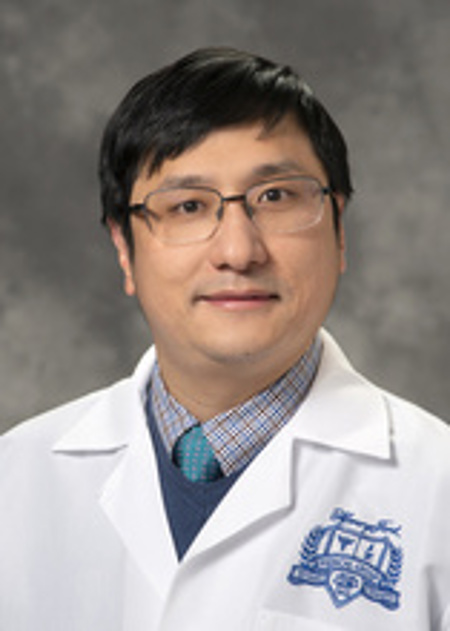Ling Huang
Assistant Scientist, Henry Ford Surgery, BioMolecular Science Gateway
Email: huangl41@msu.edu
Bio
Dr. Ling Huang is an assistant scientist in the Henry Ford Pancreatic Cancer Center at Henry Ford Health, and an assistant professor in the Department of Pharmacology and Toxicology at MSU. Ling obtained his bachelor’s degree in Biochemistry from the East China University of Science and Technology in Shanghai. To further pursue his interests in research, he attended the Ph.D. program in the Department of Biology at Purdue University (West Lafayette, Indiana). At Purdue, Ling investigated the role of calcium signaling in directional migrations of epithelial cells during wound healing and asymmetric cell division during embryonic development. Fascinated by the fact that epithelial tissues are patterned during development and regeneration while tissue architectures are disrupted in cancer development, Ling continued his scientific journey to identify biological pathways that regulate tissue regeneration and tumorigenesis in the pancreas. He pioneered the organoid models for the normal pancreas and pancreatic cancer. Utilizing organoids and other patient-derived models, he has completed impactful and highly cited research studies to expand our understanding of pancreatic cancer biology in the human cell context. He has a true passion for improving the clinical care of pancreatic cancer through scientific innovation and discoveries. His lab is interested in elucidating the biological mechanisms underlying pancreatic cancer initiation and progression, and how human genetic background may influence pancreatic tumorigenesis. A particular focus of his group is to determine how cell intrinsic and extrinsic cues alter cells states of epithelial cells to drive tumor formation in the pancreas. In addition, Ling actively collaborates with basic researchers, clinicians, and industry partners to identify more effective therapeutics for pancreatic cancer. Dr. Huang is an expert in developing patient-derived models, such as organoids, for cancer research.
